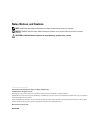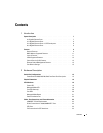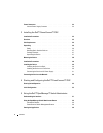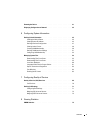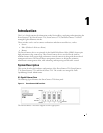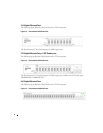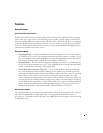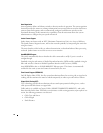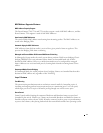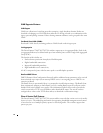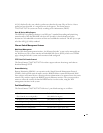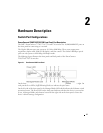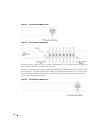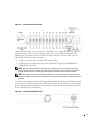
10
Auto Negotiation
Auto negotiation allows an Ethernet switch to advertise modes of operation. The auto negotiation
function provides the means to exchange information between two Ethernet switches that share a
point-to-point link segment, and to automatically configure both Ethernet switches to take
maximum advantage of their transmission capabilities. Port advertisement allows the system
administrator to configure the port speeds advertised.
Jumbo Frames Support
Jumbo frames are frames with an MTU (Maximum Transmission Unit) size of up to 10K bytes.
The Jumbo Frames Support feature, utilizes the network optimally by transporting the same data
using less frames.
The main benefits of this facility are reduced transmission overhead and reduced host processing
overhead. Jumbo frames are used for server-to-server transfers.
AutoMDI/MDIX Support
The switch automatically detects whether the cable connected to an RJ-45 port is crossed or
straight through.
Standard wiring for end stations is Media-Dependent Interface (MDI) and the
s
tandard wiring for
hubs and switches is known as Media-Dependent Interface with Crossover (MDIX).
Auto MDI/MDIX works on 10/100/1000BASE-T Ethernet ports. This feature is automatically
enabled for the entire system and cannot be turned off by the user.
Flow Control Support (IEEE802.3X)
On Full Duplex links (FDX), the flow control mechanism allows the receiving side to signal to the
sending side that transmission must be halted temporarily, in order to prevent buffer overflows.
Virtual Cable Testing (VCT)
VCT technology provides the mechanism to detect and report potential cabling issues, such as
cable opens and cable shorts on copper links.
Cable analysis is available on Copper Cables (10BASE-T/100BASE-T/1000BASE-T), and is only
done when the link is down. When the system initiates a cable-testing operation, upon explicit user
action, the following parameters are detected:
• Cable Type and Status
•Cable Length
• Fault-Distance



